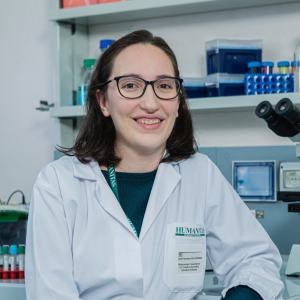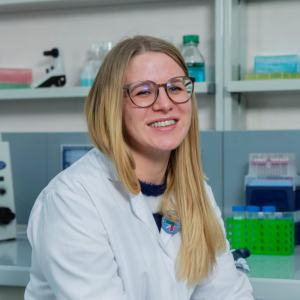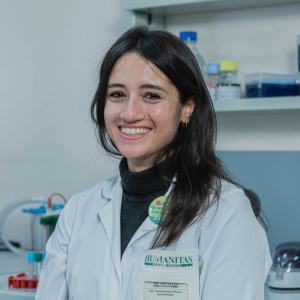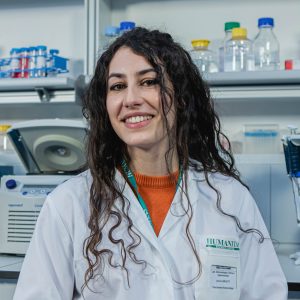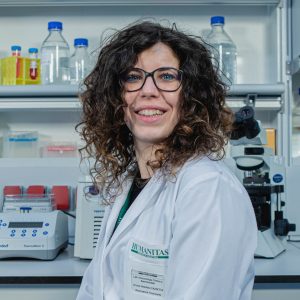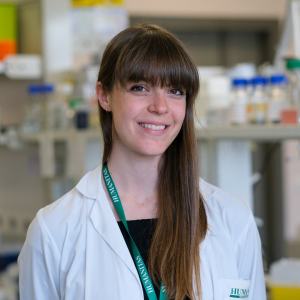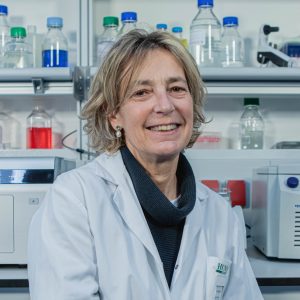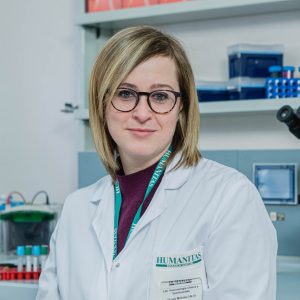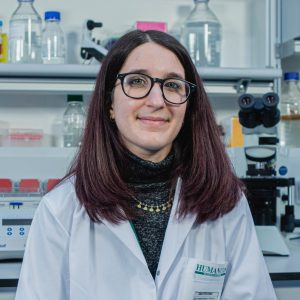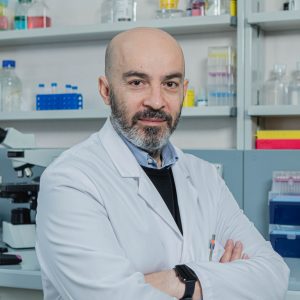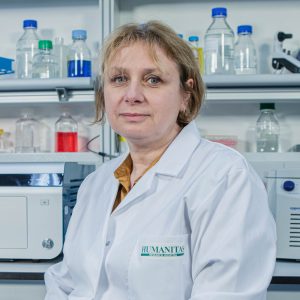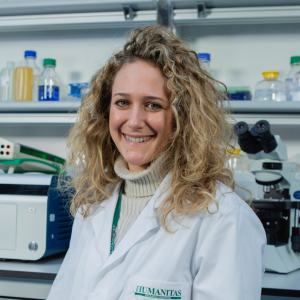Research Group
Mavilio Group
Clinical and Experimental Immunology Lab
In our translational research lab, we study and exploit mechanisms of innate immunity to design new therapeutic strategies against different human pathologies, with a particular focus on viral infections, blood and solid tumors, immune-mediated and endothelial disorders.
The challenge
The mission of the immune system is to protect us from diseases. But we now know that it plays a key role or as a direct triggering cause or as a supporting actor. This is especially true for the innate immune system, a group of cells and molecules that coordinates first-line, quick and mostly unspecific responses to insults. The same innate immune players are implicated in chronic infections and collateral damage, sustain tumor growth and attack our tissues producing immune-mediated or endothelial disorders. Understanding these mechanisms will allow us to control and re-educate innate immunity when it goes off track.
Main research areas
Understanding the impact of the immune-reconstitution on the hematopoietic stem cell transplantation outcome
Haploidentical hematopoietic stem cell transplantation (haplo-HSCT) represents a curative option for patients affected by hematologic malignancies. The comprehension of the kinetic and quality of T, B, Natural Killer (NK) cells, gamma delta (gd) T cells and Innate Lymphoid cells (ILCs) immune-reconstitution following haplo-HSCT could predict and therapeutically target opportunistic infections and Graft versus Host Disease, that frequently affect patients receiving a haplo-HSCT, while favoring the graft versus leukemia effect, thus improving the clearance of residual tumor cells.
Innate immunity in the microenvironment of human cancers
Innate immune cells can exert a broad array of anti-tumor functions. Unfortunately, their activity is impaired by the immune suppressive effects of the tumor microenvironment. A numerical, phenotypical, functional and transcriptional characterization of gd T cells, Dendritic Cells (DCs), NK cells and ILCs in different human solid and hematologic tumors will improve our understanding of their role in cancer development and progression and to implement strategies of cancer immunotherapy. In collaboration with the Humanitas Cancer Center, we are characterizing innate cells in liver metastatic colorectal cancer, hepatocarcinoma, gynecological cancers, high-grade glioblastoma, thymoma and myelodysplastic syndromes.
Endothelial progenitor cells in human health and disease
Endothelial colony-forming cells (ECFCs) are bone-marrow-derived cells that play a crucial role in endothelial homeostasis and repair. The characterization of ECFCs represents a valuable tool for non-invasive assessment of the endothelial compartment. We already demonstrated that ECFCs isolated from the blood of patients with unprovoked venous thromboembolism have impaired proliferative and vasculogenic activity and are characterized by the pathologic up-regulation of TNFSF15-TNFRSF25 axis. By studying them and including in the study also patients with secondary VTE, we are identifying novel molecular mechanisms involved in endothelial dysfunctions. Moreover, we recently extended the analysis of ED also to anti-phospholipid syndrome (APS)-associated thrombosis to study the role of ED also in this pathological setting.
Innate immunity in SARS-CoV-2 infection and vaccination
The disease progression of SARS-CoV-2 infection can be either asymptomatic or develop into life-threatening pneumonia. The reasons for this dichotomy are still unknown but are partly due to the profile of the patient’s immune response, therefore a better understanding of its magnitude, specificity and kinetics is crucial to the treatment of Covid-19 patients. For these reasons, we are studying the impact of both SARS-CoV-2 infection, in the acute phase and its neurological and neuropsychological complications (NeuroCOVID), and upon vaccination on the homeostasis of immune cells naturally endowed with the highest antiviral activities: NK cells, unconventional T cells (gd T cells and MAIT cells) and DCs.
Selected publications
Perioperative corticosteroid treatment impairs tumor-infiltrating dendritic cells in patients with newly diagnosed adult-type diffuse gliomas.
Selected memory T cells infused post haploidentical hematopoietic stem cell transplantation persist and hyper-expand.
Intrahepatic CD69(+)Vδ1 T cells re-circulate in the blood of patients with metastatic colorectal cancer and limit tumor progression.
Natural Killer Cells in SARS-CoV-2 Infection: Pathophysiology and Therapeutic Implications.
Development of Human ILCs and Impact of Unconventional Cytotoxic Subsets in the Pathophysiology of Inflammatory Diseases and Cancer.
NKG2A expression identifies a subset of human Vδ2 T cells exerting the highest antitumor effector functions.
Single-cell profiling reveals the dynamics of cytomegalovirus-specific T cells in haploidentical hematopoietic stem cell transplantation.
Single-cell profiling identifies impaired adaptive NK cells expanded after HCMV reactivation in haploidentical HSCT.
Natural Killer-Dendritic Cell Interactions in Liver Cancer: Implications for Immunotherapy.
Impact of donor age and kinship on clinical outcomes after T-cell-replete haploidentical transplantation with PT-Cy.
Pathologic up-regulation of TNFSF15-TNFRSF25 axis sustains endothelial dysfunction in unprovoked venous thromboembolism.
HIV-1-induced inflammation shapes innate immunity and induces adaptive traits in NK cells.
NKp46-expressing human gut-resident intraepithelial Vδ1 T cell subpopulation exhibits high antitumor activity against colorectal cancer.
Chemotherapy accelerates immune-senescence and functional impairments of Vδ2(pos) T cells in elderly patients affected by liver metastatic colorectal cancer.
The early expansion of anergic NKG2A(pos)/CD56(dim)/CD16(neg) natural killer represents a therapeutic target in haploidentical hematopoietic stem cell transplantation.
Increased Infiltration of Natural Killer and T Cells in Colorectal Liver Metastases Improves Patient Overall Survival.
Increased Frequency and Vasculogenic Potential of Endothelial Colony-Forming Cells in Patients with Kaposi’s Sarcoma.
Impact of APOL1 polymorphism and IL-1β priming in the entry and persistence of HIV-1 in human podocytes.
Human liver-resident CD56(bright)/CD16(neg) NK cells are retained within hepatic sinusoids via the engagement of CCR5 and CXCR6 pathways.
Role of naive-derived T memory stem cells in T-cell reconstitution following allogeneic transplantation.
Bright expression of CD91 identifies highly activated human dendritic cells that can be expanded by defensins.
B-cell reconstitution recapitulates B-cell lymphopoiesis following haploidentical BM transplantation and post-transplant CY.
Engagement of NKp30 on Vδ1 T cells induces the production of CCL3, CCL4, and CCL5 and suppresses HIV-1 replication.
Differentiation of human peripheral blood Vδ1+ T cells expressing the natural cytotoxicity receptor NKp30 for recognition of lymphoid leukemia cells.
Group members
